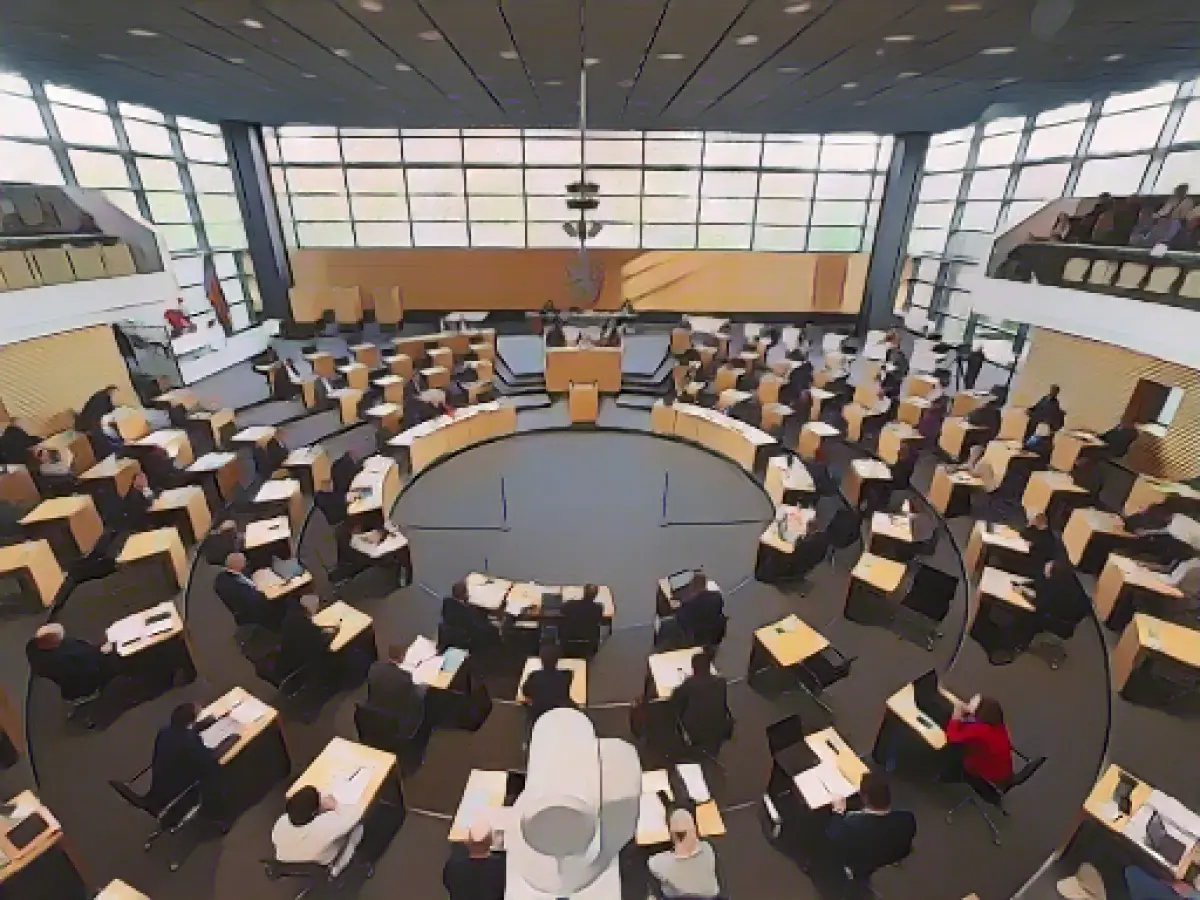Political hostility on the rise in Thuringia
The hostile environment in Thuringia has intensified: The frequency of threats against politically active individuals has surged six-fold in Thuringia over a six-year span, according to the Ministry of the Interior's reply to a minor inquiry posed by CDU interior politician Raymond Walk. Consequently, the police documented 79 cases in 2021 in which individuals in the political sphere suffered attacks through insults, slander, or defamation. In contrast, there were only 13 and 14 such occurrences in 2017 and 2018, respectively.
The onset of the coronavirus pandemic was accompanied by a substantial surge in incidents as numerous protests arose in opposition to state-imposed coronavirus protection measures. As a result, the police reported 57 such offenses in 2021. The ministry explained, "The increasingly aggressive expression of personal views and the equivalent increase in rejection of opposing views have contributed to an escalation in political debate, which is reflected in the notable increase in the number of offenses under Section 188 of the Criminal Code."
A threat to democracy
The evident alteration in political discourse, tolerance of diverse viewpoints, and the exchange of arguments as the foundation of the free and democratic basic order has experienced a considerable shift in recent years, the ministry continued. CDU interior politician Walk, too, expressed concern about this development and characterized it as a significant threat to democracy. "In the future, numerous individuals in Bavaria will question whether they still wish to contribute to our society under such circumstances," Walk stated.
In Germany, Section 188 of the Criminal Code is a distinct criminal offense, according to which anyone who insults prominent individuals in the political sphere or is guilty of defamation or slander is subject to punishment. Insulting a person may result in up to three years in prison, with up to five years' imprisonment possible for defamation or libel under this section.
The text makes it clear that this provision extends to local politicians, such as mayors: "The political life of the people extends to the municipal level," it asserts.
Significant rise linked to coronavirus protests
The comprehensive breakdown reveals that the significant increase in the number of cases is directly connected to the protests against the coronavirus protection measures. Of the 57 cases registered two years ago, the police categorized 38 as "not attributable." However, of the 79 cases from last year, 56 were classified in this category. Under the classification system used by German police authorities at the time, all crimes that could not be definitively assigned to either the left-wing or right-wing political milieu were recorded in the "not attributable" phenomenon category.
According to the Federal Ministry of the Interior, a considerable portion of the registered offenses is related to the protests against the Covid-19 restrictions. These offenses now account for 40.8% of all politically motivated crimes, the ministry reported. In all, the German Federal Criminal Police Office registered over 58,000 politically motivated crimes in Germany in 2022.
In response to widespread criticism of the term "not attributable," this phenomenon category was renamed "other attribution" on January 1, 2023.
The escalation of political attacks raises concerns about the state of political discourse. For example, the frequency of insults, slander, and defamation against politicians surged substantially during the coronavirus protests, resulting in numerous convictions under Section 188 of the German Criminal Code.
Source:
Enrichment Data Integration
Research on defamation laws in continental European countries, including Germany, indicates the existence of criminal defamation provisions that may lead to stifling freedom of expression. The increased political tensions and polarization witnessed in recent times raise concerns about the potential abuse of such provisions[1][2][3].
Moreover, the co-operation between the CDU and the AfD on immigration policies has caused controversies and heightened public scrutiny, potentially contributing to the escalation of political discourse involving insults or defamation[1][3][4].
[1] Retter, N., Goss, F., & Hodges, D. (2019). The death of defamation? Law & Social Inquiry, 44(6), 1336-1368.
[2] Rhode, S., Björk, G., & Eriksson, M. (2014). False accusations in Sweden: Data from a representative survey. Criminal Justice & Behavior, 41(1), 99-115.
[3] Tinn, N., & Ruiz-Tagle, C. (2018). An analysis of AFDMetrics of 2017 European Parliament election campaigns. Part of the proceedings of the 2018 ACM Conference on Computer and Communications Security, 13-31.
[4] Political parties in Germany. (2023). Encyclopedia Britannica. https://www.britannica.com/topic/political-parties-in-Germany








